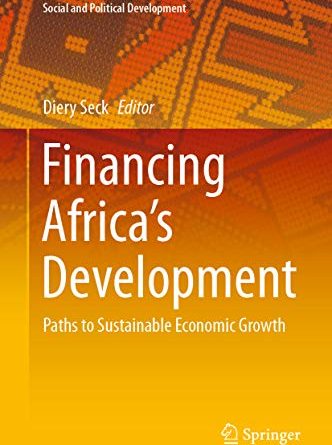Financing Africa’s Development: Paths to Sustainable Economic Growth
By Diery Seck
This book examines the impact of financing on Africa’s economic development. By exploring various financial instruments including the role of alternative sources of funding like migrant remittances and illicit flows, it analyses the role of financing for Africa’s macroeconomic development and other development indicators such as infrastructure, transport, global trade, industrialisation, social services, external indebtedness and governance. By presenting and examining case studies on various African countries and regions, the respective contributions investigate the capacity of institutions to facilitate and structure the economy’s funding activities, and to strengthen the ties between finance and development. Furthermore, they discuss various regional aspects, such as the integration of infrastructure, harmonization of fiscal policy, integration of financial markets, and the facilitation of intra-regional trade and movement of capital. Given its scope, the book will appeal to scholars of economics and development studies with an interest in the economic development of Africa.
Get the book here











